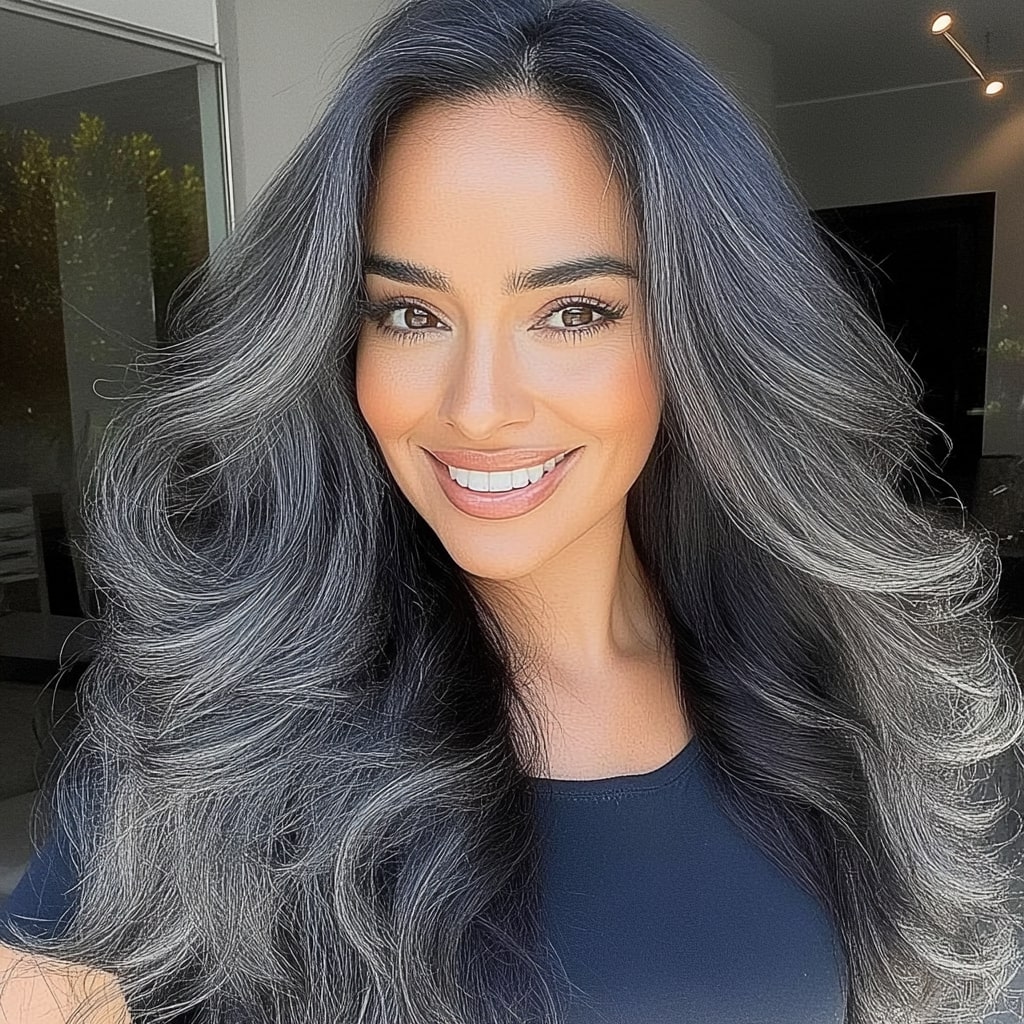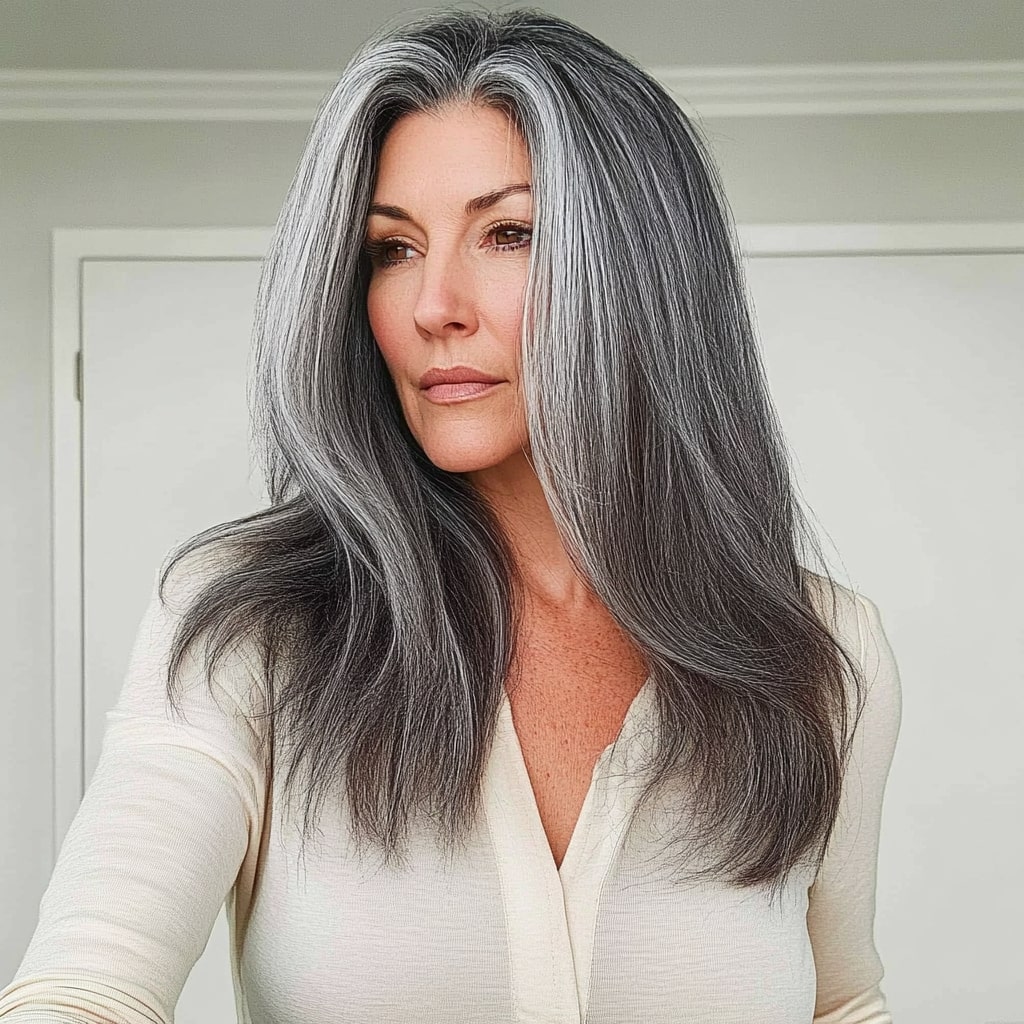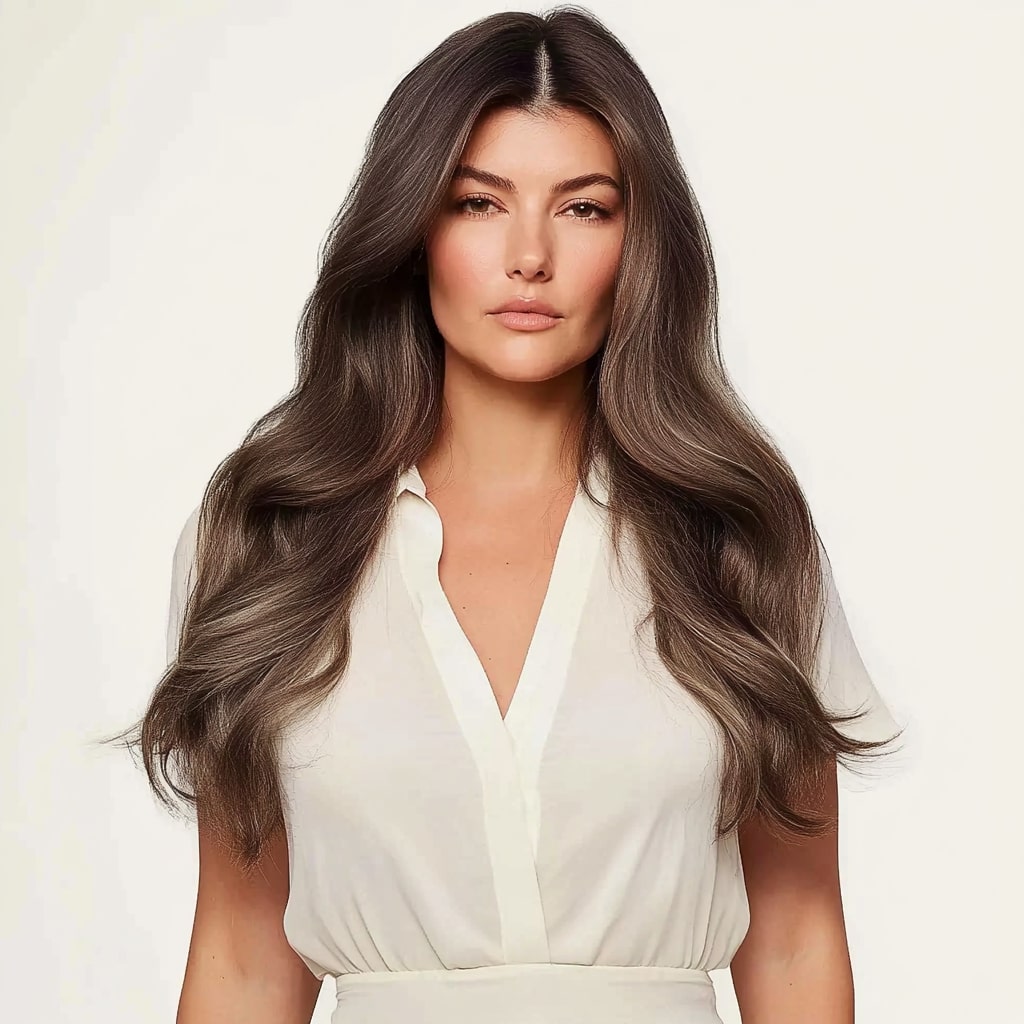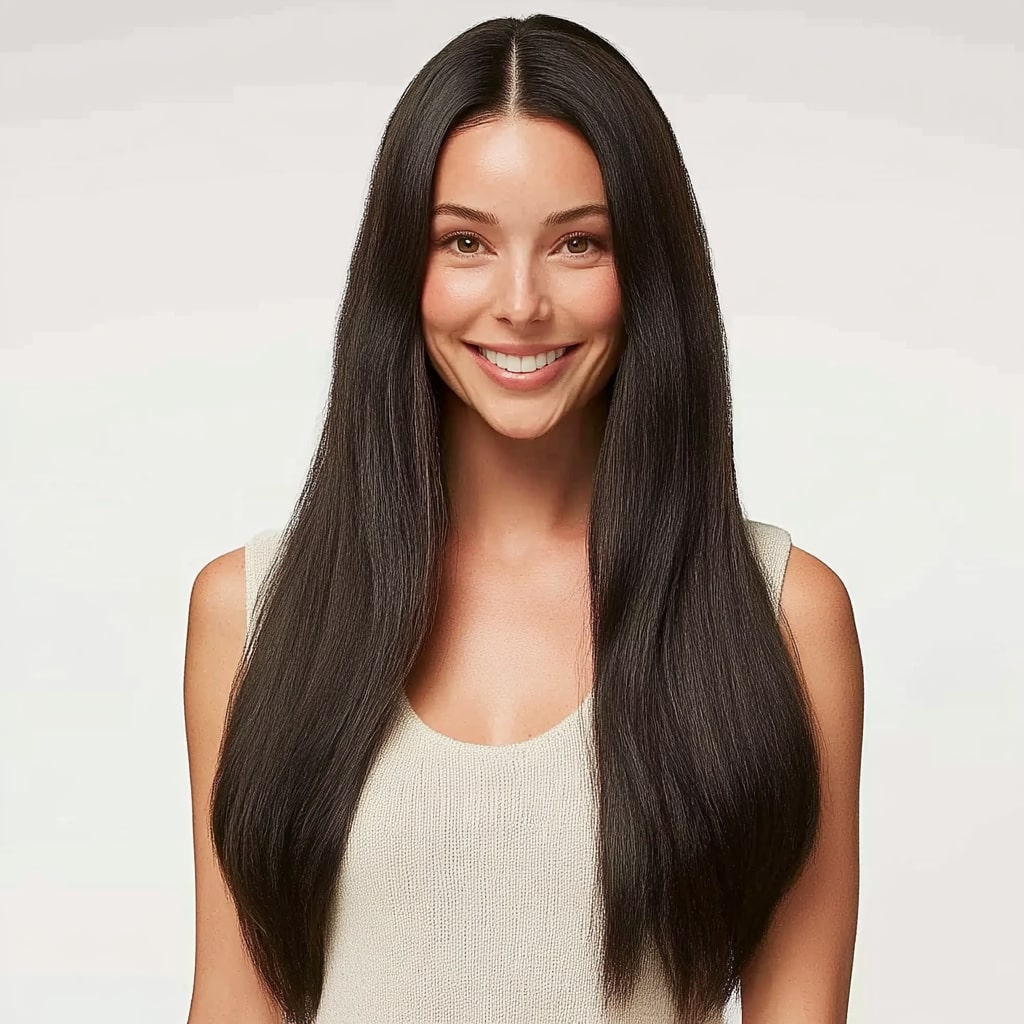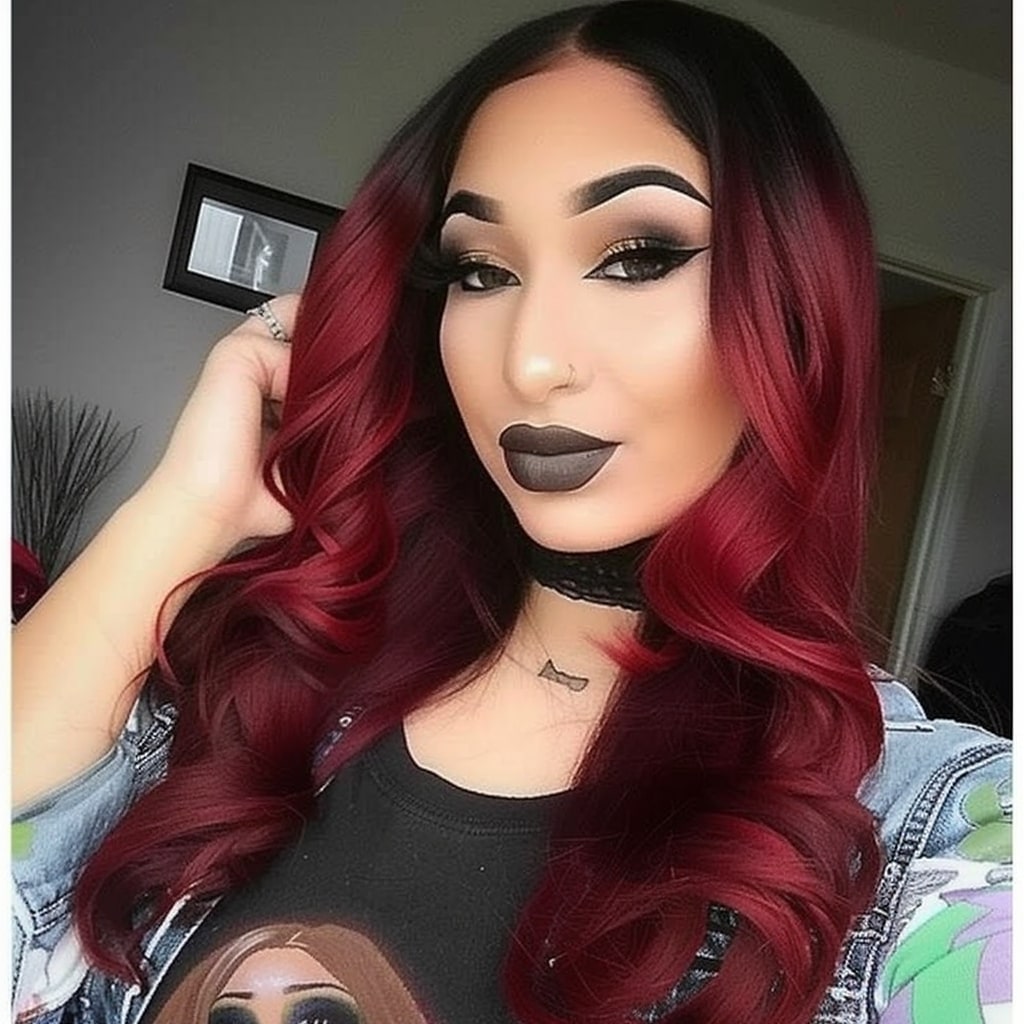Why Are My Hair Extensions Matting? Causes and Effective Solutions
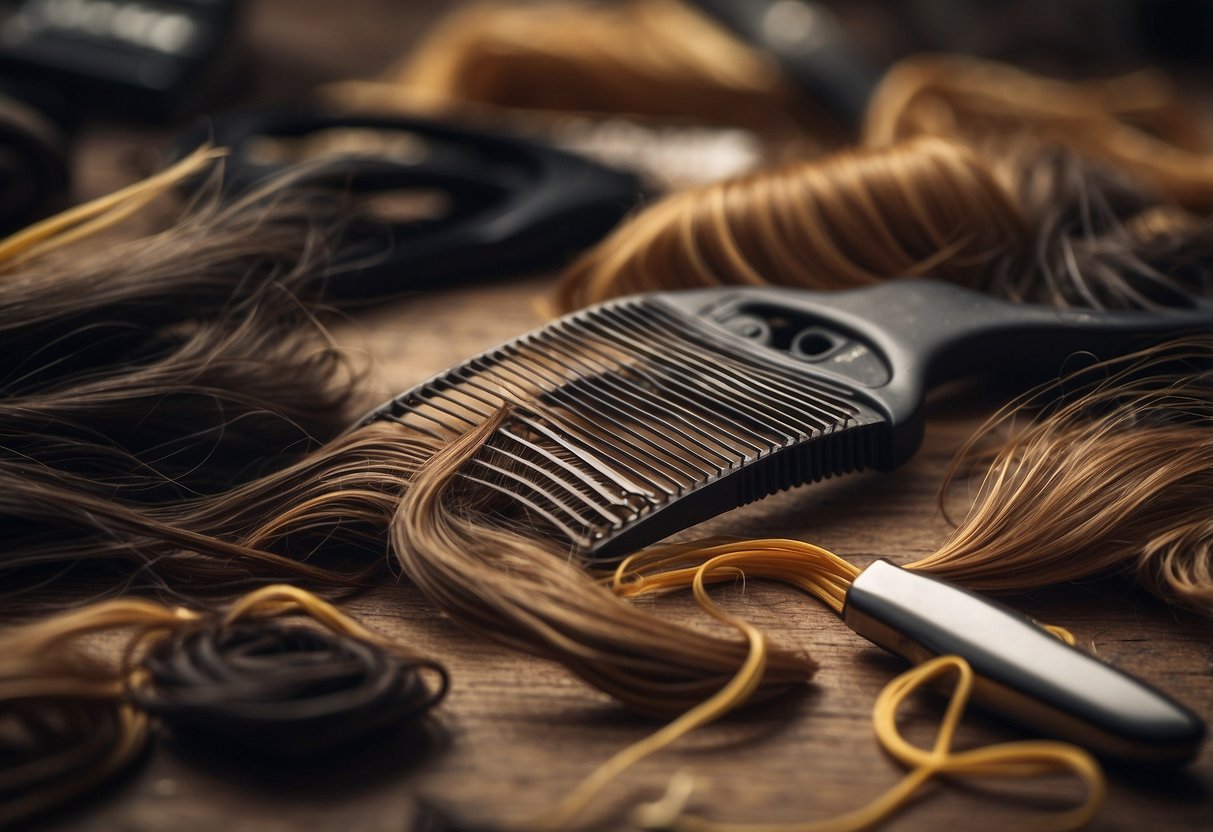
Ever wonder why your hair extensions keep matting? It's a common problem many face, and it can be frustrating. Matting often occurs due to improper care and maintenance. This includes neglecting regular brushing, not detangling properly, and even sleeping with damp hair extensions.
A big factor in matting is daily wear and tear. Hair extensions are more prone to tangling due to their added length and lack of natural oils. Regular washing, conditioning, and avoiding excessive heat styling can help maintain their smoothness. Even securing them in a loose braid before sleep can make a significant difference.
Understanding the root causes will help you prevent matting and keep your extensions looking fabulous. Proper daily care and knowing the do's and don'ts can ensure your extensions stay in prime condition for longer.
Key Takeaways
- Proper care and maintenance are essential to prevent matting.
- Daily wear and tear, and lack of natural oils contribute to tangles.
- Regular washing, conditioning, and gentle styling help maintain smoothness.
Understanding Hair Extension Matting
Hair extensions can add volume and length, but matting is a common issue. Matting happens when hair strands tangle and clump together.
Causes of Matting:
- Friction: Frequent rubbing against clothes, pillows, or scarves can cause friction, leading to tangles and matting.
- Moisture: Sleeping with wet hair extensions can lead to knots at the roots.
- Improper Care: Not separating bonds daily can also cause matting.
Types of Hair Extensions and Matting:
- Synthetic Hair: More prone to matting because it lacks the natural oils found in human hair.
- Human Hair Extensions: Less likely to mat but still need regular care.
Preventing Matting:
- Regularly brush hair with a loop or boar bristle brush.
- Avoid sleeping with wet hair. Make sure to dry it completely before going to bed.
- Moisturize with products like oils or deep conditioners to keep hair smooth.
Dealing with Frizz:
To reduce frizz, use a moisturizing shampoo and conditioner. This helps maintain the smoothness of the hair extensions.
Summary Table:
| Cause of Matting | Solution |
|---|---|
| Friction | Avoid rough fabrics |
| Sleeping with Wet Hair | Dry hair thoroughly |
| Improper Care | Separate bonds daily |
| Use of Synthetic Hair | Opt for human hair if possible |
By following these tips, matting can be minimized, making hair extensions look great longer.
Common Causes of Matting
Matting in hair extensions can be frustrating and embarrassing. Common causes include friction and tangling, lack of moisture and natural oils, and improper grooming techniques. Understanding these factors can help in maintaining smooth and tangle-free extensions.
Friction and Tangling
Hair extensions often tangle due to friction. This can happen when extensions rub against clothing, bedding, or even natural hair.
Friction causes:
- Wearing wool or other rough fabrics
- Sleeping without securing hair
- Brushing too roughly
Using a satin or silk pillowcase can reduce friction. Also, tying hair in a loose braid or bun at night helps prevent tangling. Daily brushing with a loop brush or wide-tooth comb keeps hair smooth.
Lack of Moisture and Natural Oils
Extensions can lack natural oils because they are not connected to the scalp.
Effects of lack of moisture:
- Hair becoming dry and brittle
- Increased tangling due to dryness
Using moisturizing shampoos and conditioners helps keep hair supple. Products containing argan oil or coconut oil are beneficial. Regular deep conditioning treatments can also add much-needed moisture. Applying a light oil or serum can protect extensions from dryness.
Improper Grooming Techniques
Incorrect grooming methods can lead to matting.
Common mistakes:
- Not detangling before washing
- Using the wrong tools like fine-tooth combs
Always detangle hair extensions before getting them wet. Start from the tips and work up to the roots. Avoid using fine-tooth combs which can cause breakage. Instead, opt for loop brushes or wide-tooth combs.
Ensuring hair is fully dry before sleeping or styling is crucial. Wet hair is more prone to tangling. Using gentle techniques while brushing also prevents breakage and matting.
By addressing these common causes, one can maintain beautiful, tangle-free hair extensions.
Prevention Strategies
Preventing hair extension matting involves both selecting the right extensions and ensuring they are properly installed. Care and ongoing maintenance are also crucial.
Choosing the Right Hair Extensions
Start by selecting high-quality hair extensions. Look for extensions made from 100% human hair. Synthetic extensions are more prone to tangling and matting. The texture of the extensions should match your natural hair as closely as possible.
Ensure the extensions are responsibly sourced and verified by reputable brands. Check reviews and seek recommendations if you are unsure.
Using extensions that come pre-treated with nourishing oils, like argan oil or coconut oil, can also help reduce matting.
Proper Installation Techniques
Proper installation is key to preventing matting. Always have your extensions installed by a professional to avoid complications. They can ensure that your extensions are placed correctly and securely.
Extensions should be installed without excessive tension. This can cause stress on your natural hair and lead to tangles at the roots.
Regular maintenance is also vital. Secure your hair in a loose braid before bed and consider using a silk pillowcase to reduce friction. Running your fingers through your extensions daily can help separate any minor tangles before they become a problem.
Caring for Long-Term Health of Hair Extensions
To maintain the quality of your hair extensions, it's crucial to incorporate key practices such as regular brushing, proper washing, and using suitable hair products. These actions can significantly extend the lifespan and appearance of your extensions.
Regular Brushing and Combing
Regular brushing prevents matting, tangling, and breakage in hair extensions. Use a soft-bristle brush or a wide-tooth comb to gently detangle the extensions, starting from the ends and working your way up to the roots.
Avoid yanking or pulling. Brushing at least twice a day — in the morning and before bed — maintains smoothness. A good brush helps evenly distribute natural oils, making the extensions look healthier and shinier.
Washing and Conditioning
Proper washing and conditioning keep hair extensions clean and hydrated. Use a gentle, sulphate-free shampoo to avoid stripping the hair of its natural oils. Upon washing, focus more on the scalp and roots, letting the shampoo naturally clean the lengths as it rinses out.
Always follow up with a sulphate-free conditioner. Apply conditioner starting from the mid-lengths to the ends. Deep conditioning once a week can provide extra moisture.
Use of Proper Hair Products
Choosing the right hair products is essential for the long-term health of hair extensions. Avoid products with alcohol and sulphates, as they can dry out and damage the extensions.
Opt for lightweight, moisturizing products to prevent buildup and added weight. Dry shampoo can help keep the hair clean between washes without the need for excessive washing. Avoid heavy oils and creams that may cause clumping.
By following these practices, your hair extensions can remain beautiful and manageable for a longer period.
Professional Solutions and Repair
A professional stylist can offer targeted treatments to fix matted hair extensions. They have access to specialized tools and products that can carefully untangle and smooth out the extensions without causing damage.
Steps a professional might take:
-
Deep Conditioning Treatment: A stylist can apply a deep conditioning treatment to soften the hair and make detangling easier.
-
Sectioning: They may break down the hair into smaller sections, making it more manageable to detangle.
-
Loop Brush: Professionals often use a loop brush or a boar bristle brush, which are gentle on hair extensions.
-
Heat Protection Spray: When using heat tools like flat irons or blow dryers, a heat protection spray is essential. This helps prevent further damage.
It is also important to avoid:
-
Sleeping with wet hair extensions: Extensions should be completely dry before bed to prevent matting.
-
Using harsh products: Avoid products with alcohol, as they can dry out hair extensions, leading to more tangles.
Regular visits to a professional stylist can also help maintain the condition of hair extensions. Regular maintenance includes proper washing, conditioning, and detangling techniques, tailored to the individual's needs.
By following these professional solutions, one can effectively manage and repair matted hair extensions, while ensuring their longevity and appearance.
Tips and Hacks
To keep hair extensions looking their best and avoid matting, it's crucial to follow specific care practices and use helpful remedies. Proper maintenance can prevent common issues like shedding and ensure long-lasting, smooth extensions.
Avoiding Common Mistakes
Use the Right Brush: Always use a loop brush or a boar bristle brush designed for hair extensions. These brushes reduce the risk of pulling and breaking the hair. Brush Regularly: Brush your extensions 2-3 times a day to avoid tangles. It’s essential to work gently to prevent matting and shedding.
Secure Your Hair: When sleeping, keep your hair in a loose braid. This simple step helps prevent tangles and matting overnight. Avoid Heat Damage: Use a heat protection spray before styling with hot tools. Excessive heat can weaken the extensions and lead to more tangling.
Mind the Bonds: Run your fingers between the bonds daily to separate any small tangles. This prevents them from turning into bigger knots. Wash and Dry Carefully: Use a moisturizing shampoo and allow your hair to air dry. Avoid rubbing with a towel, as it can create friction and cause matting.
Home Remedies and Quick Fixes
Oil Treatments: Apply natural oils like argan oil, coconut oil, or olive oil to add moisture. These oils help in detangling and add shine. Deep Conditioning: Use a deep conditioner to keep the extensions smooth and tangle-free. Let the conditioner sit for 10 minutes before rinsing.
Detangling Sprays: A good spray detangler can make a significant difference. Spray on damp hair to make combing easier. Wide-Tooth Comb: For severe tangles, a wide-tooth comb works best. Start from the bottom and work your way up to avoid breakage.
Gentle Techniques: Avoid backcombing or teasing your extensions, as this can cause matting and shedding. Regular Maintenance: Regular professional maintenance can help keep your extensions in top condition. Visit a stylist who specializes in extensions for the best advice and treatment.
Heat Protection: Always apply a heat protection spray before using hot styling tools. This reduces the risk of heat damage that can lead to matting and shedding. Avoid Harsh Products: Steer clear of products with alcohol or sulphates, as they can dry out the extensions and cause matting. Use mild, extension-friendly products instead.
Frequently Asked Questions
To maintain smooth and healthy hair extensions, it's important to follow proper care routines and use the right products. This section addresses common questions related to keeping hair extensions tangle-free and in good condition.
How can I prevent hair extensions from tangling at the root?
Lightly wet your hair, rather than soaking the extensions to avoid breakage. Use a moisturizing treatment like olive, argan, or coconut oil to make detangling easier. Regular gentle brushing also helps prevent tangles at the root.
What are the best practices for washing hair extensions to avoid matting?
Avoid rubbing and moving the hair around too much when washing. Use your hands in a smoothing motion from top to bottom. Apply shampoo and conditioner in the same manner to reduce tangling during the cleaning process.
In what way can human hair extensions be kept from tangling?
Use a loop brush or a boar bristle brush for detangling. Gently brush through the hair, removing knots carefully without pulling too hard. Regular brushing and the use of moisturizing products like argan oil help keep the extensions smooth.
What steps should be taken to remedy dry and frizzy hair extensions?
Apply deep conditioning treatments or moisturizing oils such as coconut or argan oil. Use a detangling spray, especially if the extensions are very dry. Gently brush the extensions regularly to maintain their smoothness and reduce frizz.
Is matting a common issue with tape-in hair extensions?
Matting can occur with tape-in hair extensions, especially if they are not maintained properly. Regular gentle brushing and the use of detangling products are key to keeping tape-in extensions tangle-free and in good condition.
What type of brush should I use for my hair extensions?
A loop brush or boar bristle brush is recommended for hair extensions. These types of brushes are gentle and effective for removing knots without causing damage. Regular, careful brushing helps maintain the smoothness and longevity of the extensions.

 My Store Credit
My Store Credit
 Buy Again
Buy Again
